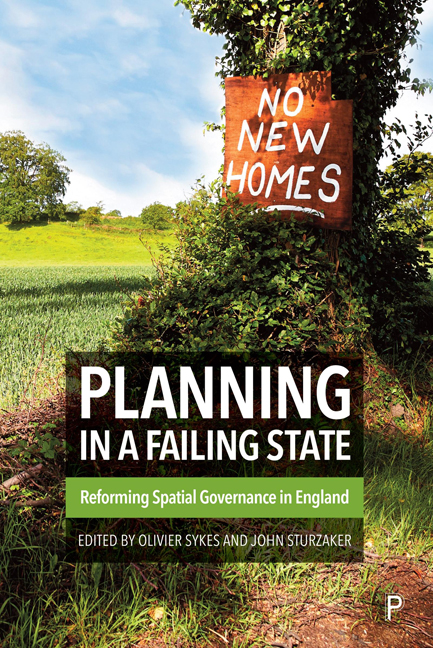Book contents
- Frontmatter
- Dedication
- Contents
- List of figures and tables
- Notes on contributors
- Acknowledgements
- 1 Introduction
- 2 The (housing) numbers game
- 3 Localism: the peccadillos of a panacea
- 4 Planning at the ‘larger than local’ scale: where next?
- 5 PD games: death comes to planning
- 6 Building beauty? Place and housing quality in the planning agenda
- 7 Zoning in or zoning out? Lessons from Europe
- 8 Planning and the environment in England, 2010–22: cutting ‘green crap’, Brexit and environmental crises
- 9 Stuck on infrastructure? Planning for the transformative effects of transport infrastructure
- 10 Conclusion
- Index
2 - The (housing) numbers game
Published online by Cambridge University Press: 27 March 2024
- Frontmatter
- Dedication
- Contents
- List of figures and tables
- Notes on contributors
- Acknowledgements
- 1 Introduction
- 2 The (housing) numbers game
- 3 Localism: the peccadillos of a panacea
- 4 Planning at the ‘larger than local’ scale: where next?
- 5 PD games: death comes to planning
- 6 Building beauty? Place and housing quality in the planning agenda
- 7 Zoning in or zoning out? Lessons from Europe
- 8 Planning and the environment in England, 2010–22: cutting ‘green crap’, Brexit and environmental crises
- 9 Stuck on infrastructure? Planning for the transformative effects of transport infrastructure
- 10 Conclusion
- Index
Summary
Introduction
In April 2010, the average house price in England was £177,000; by April 2021, it was £268,000 (HM Land Registry, 2021) – an increase of more than double the average annual inflation of 2 per cent (Bank of England, 2022). Private rents have increased in line with incomes by an average of 1.9 per cent per annum since the start of the Conservative–Liberal Democrat Coalition government (ONS, 2021a). In 2010, the average weekly local authority rent was £68; in 2020, it was £86. Over the same period, registered-provider rents increased from an average of £78 to £94 (MHCLG, 2021a), both inflating above earnings. Between 2012 and 2020, homelessness increased by 40,000 households, and projections are for this to continue rising under the current welfare and housing system (Fitzpatrick et al, 2021). In 2010, 65.2 per cent of dwellings were owner-occupied; in 2020, that had fallen to 63.8 per cent (MHCLG, 2021b). Affordable housing has been officially redefined so that new housing statistics include dwellings at 80 per cent of market rent and price, which remain unaffordable for low-income earners in many parts of the country. First-time buyers have been given support since 2013 through two new help-to-buy schemes, with the government effectively underwriting mortgages, though with little impact on housing affordability. Taxes on private landlords and second homeowners have increased, while local authority borrowing restrictions have been partially relaxed to enable further local authority housing delivery. The threshold for stamp duty land tax was lowered by the Coalition government in 2010, then the system was changed from a slab to a slice approach in 2015. In 2020, following the growth in COVID-19, a stamp duty land tax ‘holiday’ was introduced to encourage house sales to continue through the pandemic.
This list reveals that there are numerous challenges associated with housing numbers across accessibility, availability and supply. In this chapter, we explore the current state of planning for housing in England, focusing on one of the key reductionisms: housing numbers. Housing numbers have become the dominant discourse in local and national housing and planning policies, and are a colloquial euphemism for variously the amount of housing supply required, permitted and delivered.
- Type
- Chapter
- Information
- Planning in a Failing StateReforming Spatial Governance in England, pp. 19 - 37Publisher: Bristol University PressPrint publication year: 2023

